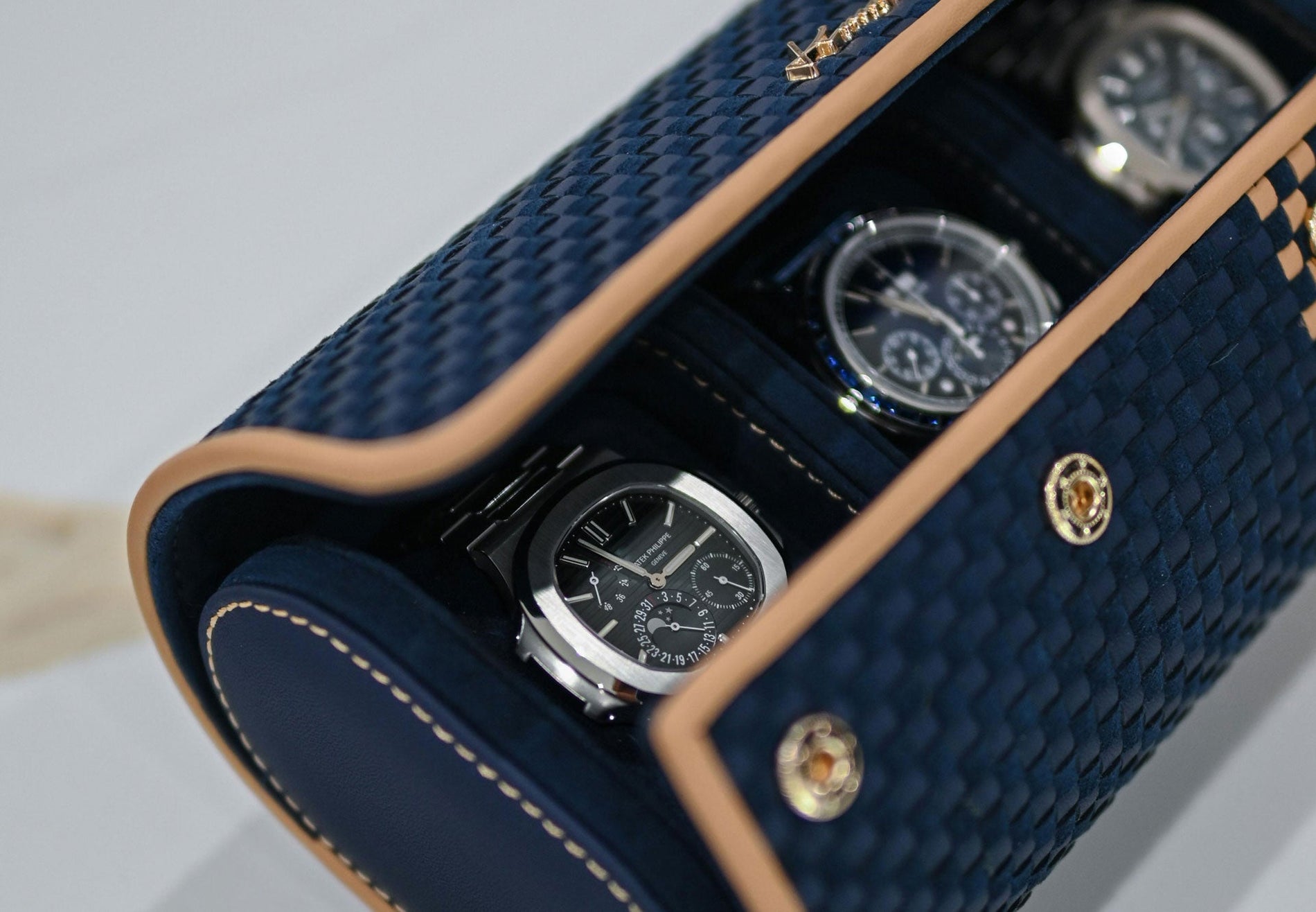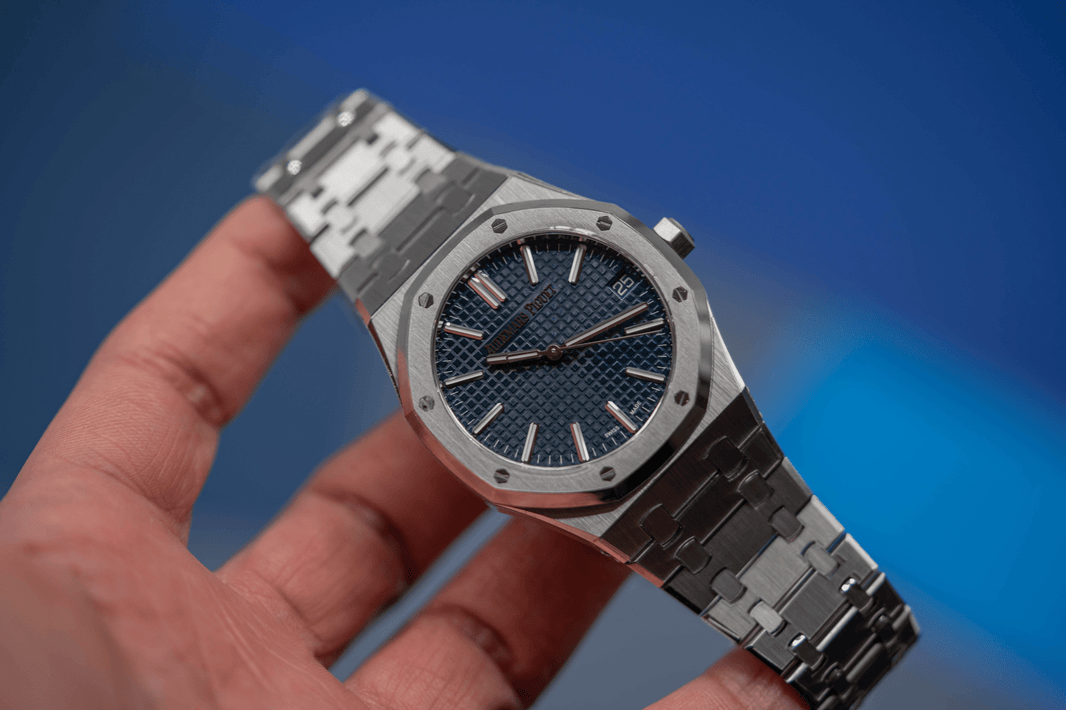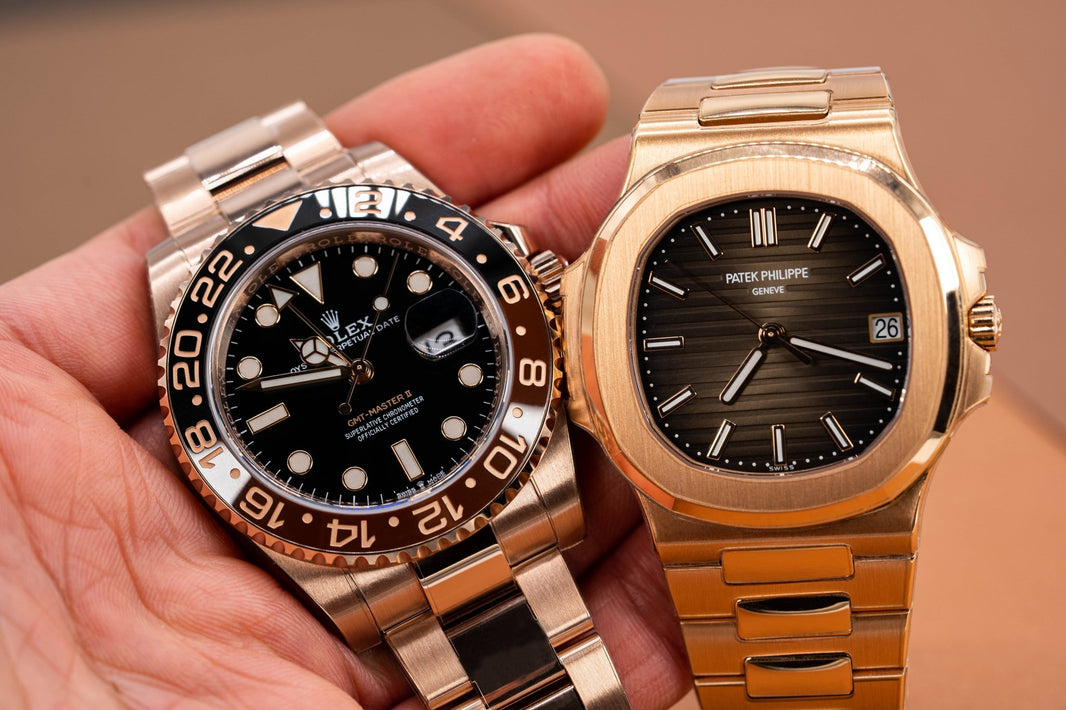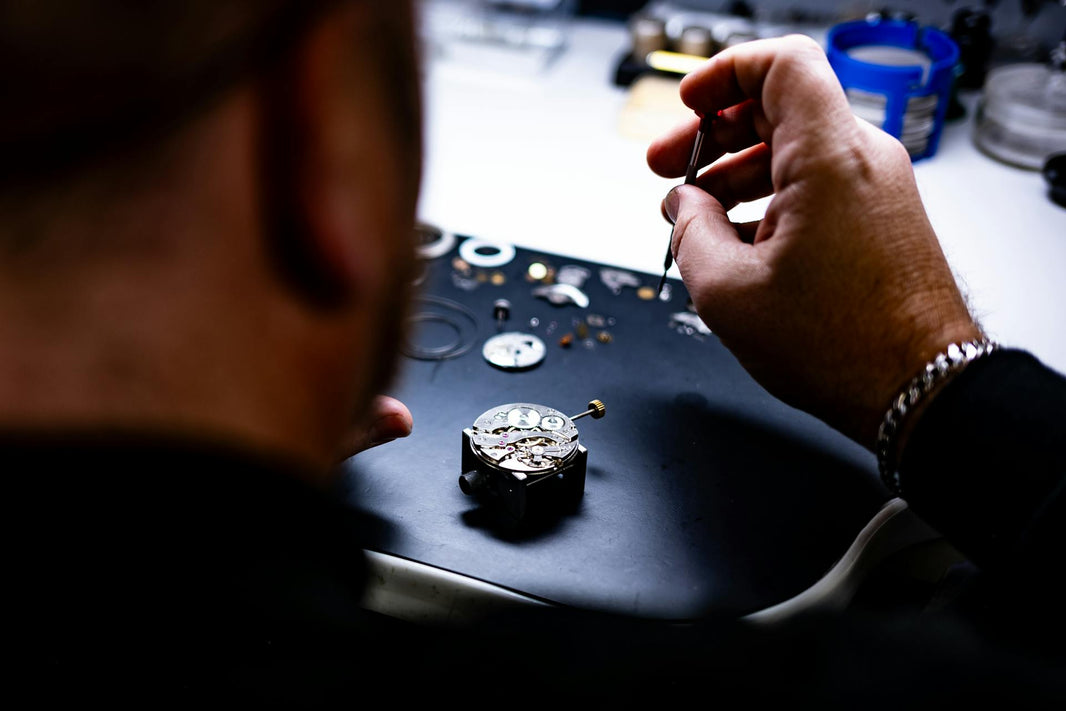In an era dominated by smartphones and wearable tech, one might question the relevance of mechanical watches—especially luxury timepieces that can cost more than a car. Yet, luxury watches continue to thrive, not just as tools to tell time but as symbols of craftsmanship, legacy, and personal style. Despite the convenience of smartwatches, high-end mechanical watches remain highly desirable. Here's why.
1. Craftsmanship and Tradition
Luxury watches are synonymous with meticulous craftsmanship. Unlike digital devices that are mass-produced, luxury watches are often handcrafted, with each component intricately assembled by skilled artisans. Brands like Patek Philippe and Audemars Piguet have spent decades, even centuries, perfecting the art of watchmaking.
Jean-Claude Biver, a former executive at Hublot and TAG Heuer, often speaks about the emotional connection between humans and their watches. In an interview with GQ, Biver said, "A mechanical watch represents history and eternity; it’s a living object that interacts with us daily, unlike a digital product that becomes obsolete within a few years." This emphasis on timeless craftsmanship distinguishes luxury watches from tech-driven alternatives that require frequent updates.
2. Emotional and Personal Value
A luxury watch often carries more than just monetary value—it can be a symbol of achievement, a family heirloom, or a reflection of personal taste. While a smartwatch might offer functionality, it doesn’t carry the emotional significance that comes with owning a finely crafted timepiece.
As John Mayer, a well-known watch collector and musician, explained in his 2015 interview with Hodinkee, "You never really own a Patek Philippe. You merely look after it for the next generation." This phrase, coined by the brand, encapsulates the idea of watches being passed down through generations, making them treasures rather than gadgets with expiration dates.
3. Status Symbol and Prestige
While technology companies race to release the latest wearable with enhanced features, luxury watches maintain their status as symbols of prestige. Owning a Rolex or a Richard Mille is not just about functionality but also about signalling taste, success, and wealth. These watches are often seen on the wrists of CEOs, celebrities, and athletes, reinforcing their association with success.
Aurel Bacs, one of the most respected watch auctioneers in the world, discussed in The New York Times how luxury watches serve as more than accessories. “A luxury watch is more than a time-telling device; it’s a statement piece, a work of art, and a reflection of an individual’s journey,” Bacs noted. He emphasised that while smartwatches are practical, luxury watches tell a story that goes beyond their mechanical movements.
4. Longevity vs. Obsolescence
One of the key arguments in favor of luxury watches in the digital age is their longevity. Smartwatches and other tech devices have short lifespans due to the rapid pace of technological innovation. In contrast, a well-maintained luxury watch can last a lifetime—and beyond.
Watches like the Omega Speedmaster, worn during the Apollo missions, or the Jaeger-LeCoultre Reverso, which debuted in the 1930s, have stood the test of time both in design and functionality. The enduring appeal of these watches underscores their staying power in a world where digital products quickly become obsolete.
Swiss watchmaker Philippe Dufour has been an outspoken advocate of the beauty and longevity of mechanical watches. “A mechanical watch has a soul because it’s made by hand, piece by piece. A digital device may be smart, but it doesn’t have the same sense of permanence,” Dufour remarked during an industry interview.
5. Investment Potential
In recent years, luxury watches have become popular as investment assets. Brands like Patek Philippe, Rolex, and Audemars Piguet have seen their watches appreciate significantly in value, with certain models becoming highly sought-after collectibles. This investment potential adds another layer to their relevance.
According to Paul Boutros, Head of Americas for Phillips Auction House, “Watches are the art you can wear, and like fine art, the right pieces only increase in value over time.” His comments reflect the growing trend of watch collecting, where vintage and rare models can fetch millions at auction.
6. Mechanical Beauty in a Digital World
Lastly, there’s something undeniably beautiful about mechanical watches. Their intricate movements, visible through exhibition casebacks, demonstrate an art form that has survived for centuries. In an increasingly digitised world, this mechanical beauty offers a welcome respite from the ever-growing dependence on technology.
Watch expert and author Nick Foulkes describes the allure of mechanical watches in contrast to modern gadgets: “A mechanical watch isn’t just about telling time—it’s about taking time. It invites you to pause and appreciate the world around you, something we lose with our constant immersion in digital devices.”
Conclusion
While smartwatches offer convenience and features, luxury watches offer something much more profound—history, artistry, and personal significance. In a fast-paced, ever-changing digital age, the luxury watch stands as a timeless piece of art, offering longevity, emotional connection, and a sense of permanence. High-profile figures in the watch world, from collectors like John Mayer to experts like Aurel Bacs, agree that luxury watches will continue to thrive because they offer something that digital devices cannot: a legacy of craftsmanship, tradition, and timeless appeal.
Owning a luxury watch is more than just keeping track of time—it's a celebration of human ingenuity and a connection to the past, present, and future.
1. Craftsmanship and Tradition
Luxury watches are synonymous with meticulous craftsmanship. Unlike digital devices that are mass-produced, luxury watches are often handcrafted, with each component intricately assembled by skilled artisans. Brands like Patek Philippe and Audemars Piguet have spent decades, even centuries, perfecting the art of watchmaking.
Jean-Claude Biver, a former executive at Hublot and TAG Heuer, often speaks about the emotional connection between humans and their watches. In an interview with GQ, Biver said, "A mechanical watch represents history and eternity; it’s a living object that interacts with us daily, unlike a digital product that becomes obsolete within a few years." This emphasis on timeless craftsmanship distinguishes luxury watches from tech-driven alternatives that require frequent updates.
2. Emotional and Personal Value
A luxury watch often carries more than just monetary value—it can be a symbol of achievement, a family heirloom, or a reflection of personal taste. While a smartwatch might offer functionality, it doesn’t carry the emotional significance that comes with owning a finely crafted timepiece.
As John Mayer, a well-known watch collector and musician, explained in his 2015 interview with Hodinkee, "You never really own a Patek Philippe. You merely look after it for the next generation." This phrase, coined by the brand, encapsulates the idea of watches being passed down through generations, making them treasures rather than gadgets with expiration dates.
3. Status Symbol and Prestige
While technology companies race to release the latest wearable with enhanced features, luxury watches maintain their status as symbols of prestige. Owning a Rolex or a Richard Mille is not just about functionality but also about signalling taste, success, and wealth. These watches are often seen on the wrists of CEOs, celebrities, and athletes, reinforcing their association with success.
Aurel Bacs, one of the most respected watch auctioneers in the world, discussed in The New York Times how luxury watches serve as more than accessories. “A luxury watch is more than a time-telling device; it’s a statement piece, a work of art, and a reflection of an individual’s journey,” Bacs noted. He emphasised that while smartwatches are practical, luxury watches tell a story that goes beyond their mechanical movements.
4. Longevity vs. Obsolescence
One of the key arguments in favor of luxury watches in the digital age is their longevity. Smartwatches and other tech devices have short lifespans due to the rapid pace of technological innovation. In contrast, a well-maintained luxury watch can last a lifetime—and beyond.
Watches like the Omega Speedmaster, worn during the Apollo missions, or the Jaeger-LeCoultre Reverso, which debuted in the 1930s, have stood the test of time both in design and functionality. The enduring appeal of these watches underscores their staying power in a world where digital products quickly become obsolete.
Swiss watchmaker Philippe Dufour has been an outspoken advocate of the beauty and longevity of mechanical watches. “A mechanical watch has a soul because it’s made by hand, piece by piece. A digital device may be smart, but it doesn’t have the same sense of permanence,” Dufour remarked during an industry interview.
5. Investment Potential
In recent years, luxury watches have become popular as investment assets. Brands like Patek Philippe, Rolex, and Audemars Piguet have seen their watches appreciate significantly in value, with certain models becoming highly sought-after collectibles. This investment potential adds another layer to their relevance.
According to Paul Boutros, Head of Americas for Phillips Auction House, “Watches are the art you can wear, and like fine art, the right pieces only increase in value over time.” His comments reflect the growing trend of watch collecting, where vintage and rare models can fetch millions at auction.
6. Mechanical Beauty in a Digital World
Lastly, there’s something undeniably beautiful about mechanical watches. Their intricate movements, visible through exhibition casebacks, demonstrate an art form that has survived for centuries. In an increasingly digitised world, this mechanical beauty offers a welcome respite from the ever-growing dependence on technology.
Watch expert and author Nick Foulkes describes the allure of mechanical watches in contrast to modern gadgets: “A mechanical watch isn’t just about telling time—it’s about taking time. It invites you to pause and appreciate the world around you, something we lose with our constant immersion in digital devices.”
Conclusion
While smartwatches offer convenience and features, luxury watches offer something much more profound—history, artistry, and personal significance. In a fast-paced, ever-changing digital age, the luxury watch stands as a timeless piece of art, offering longevity, emotional connection, and a sense of permanence. High-profile figures in the watch world, from collectors like John Mayer to experts like Aurel Bacs, agree that luxury watches will continue to thrive because they offer something that digital devices cannot: a legacy of craftsmanship, tradition, and timeless appeal.
Owning a luxury watch is more than just keeping track of time—it's a celebration of human ingenuity and a connection to the past, present, and future.







1 comment
This blog offers a compelling and insightful defense of luxury watches in the digital age. It’s a valuable read for understanding their enduring value as art, heirlooms, and statements of personal style. https://saveplus.in/